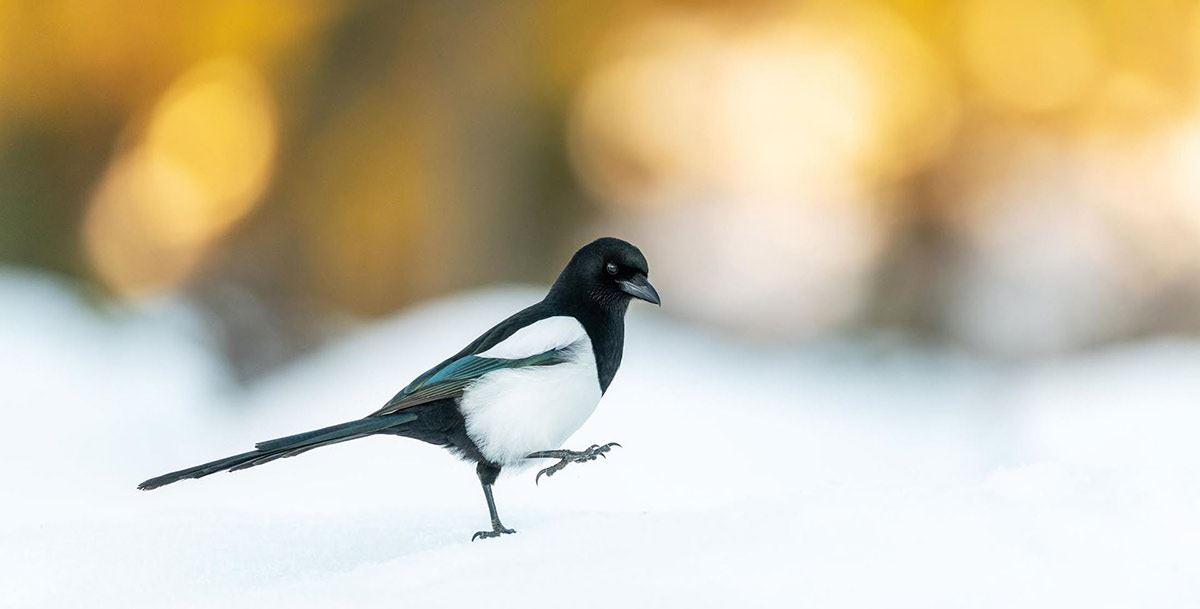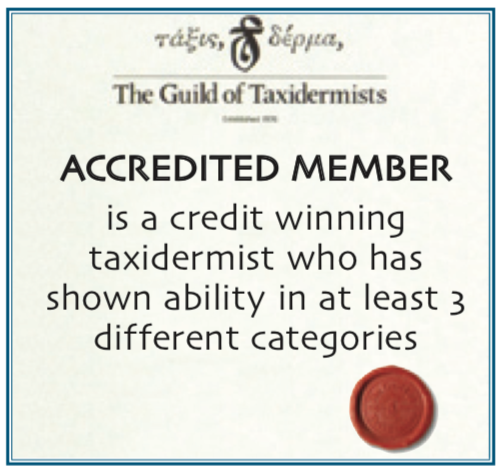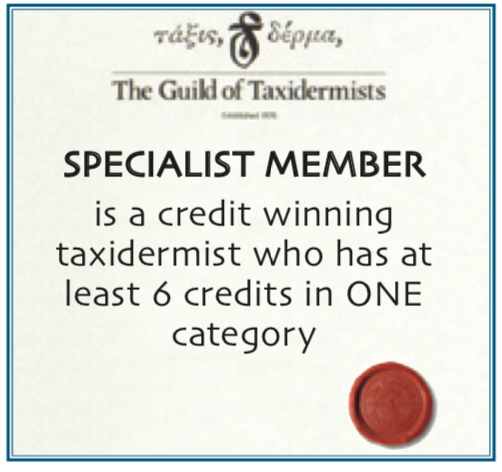|
Taxidermy Classes and Credit System Explained
The Guild of Taxidermists runs the only qualification for taxidermists within the UK. The system is built around a certain amount of credits that a member can earn. There are only two types of credits: STANDARD credits and HIGHER credits.
ClassesNoviceA Novice is classified as anyone who has practiced taxidermy for less than 5 years and who has no credits in any of the disciplines, i.e. bird, mammal, fish, heads etc. AmateurAn Amateur is classified as anyone who has practised taxidermy for more than 5 years who holds 0-1 credits earned in the Novice division, i.e. bird, mammal, fish, heads etc. However if they have a credit in one of the disciplines, e.g. birds then they will be competing in the Professional class for that discipline, e.g. bird class. ProfessionalA Professional is classified by having a credit in any one of the disciplines, e.g. birds, but will remain as amateur in mammals, fish, heads etc. if they have no credits in these disciplines. Anyone can compete in a higher class than the rules above dictate at their discretion, e.g. someone with no credits can decide to compete in the professional class. | Standard and Higher CreditsStandard CreditsThe judging is conducted by highly experienced judges who will examine the work and pass comment on anatomical accuracy, quality of workmanship and finishing. The piece is scored on this basis and will be awarded a Standard Credit if the required score is achieved. Higher Credits Specimens need to be of an exceptionally high standard in the following categories:
Rules for Judging Higher Credits
These specimens will be judged by a panel on the same basis as above. Three such awards in one category will achieve Master status for that category, e.g., three higher credits for bird mounts will earn the title of Master Bird Taxidermist. It is possible for a Higher credit to be awarded at any time, for any piece that is judged to be of a high enough standard. Opportunities to present specimens for judging are given at each of the Conferences (AGMs) and at seminars. Higher credits can only be awarded at a Conference. |
|
|
|
AccreditedAccredited is a qualification that can be gained by showing an all-round capability in the field of taxidermy. To achieve this status, one must present for judging a total of six mounts covering three categories.
| SpecialistThe member must present for judging six specimens over a period of time, within one of the following five categories, with the aim of becoming a Specialist in that category.
Again the specimens are judged as above and once six Standard Credits are earned in, for example, the bird category, that member is then awarded "Bird Specialist". The same can be achieved for each category. The credits awarded in Accredited membership can be carried over to earn Specialist membership. | MasterThe highest qualification in the Guild is that of Master. To achieve such an award, you must gain three higher credits, but those must be from three different bird families, three different mammal species, three different game head species, three different reptile species, or three different fish species. The specimens need to be of an exceptionally high standard, the taxidermist must provide reference photos and photos of the form used to show they made it themselves or altered an existing one, in the following categories:
These specimens will be judged by a panel on the same basis as above. Three such awards in one category will achieve Master status for that category, e.g., three higher credits for bird mounts will earn the title of Master Bird Taxidermist. It is possible for a Higher credit to be awarded at any time, for any piece that is judged to be of a high enough standard. Opportunities to present specimens for judging are given at each of the Conferences (AGMs) and at seminars. Higher credits can only be awarded at a Conference. |
Examples of specimens recently awarded standard credits are below.
Here are a few examples of a range of specimens that have gained a standard credit recently.
A one-dimensional photo is not ideal, but it should still give you a good idea of how your work compares and the standard of work required.




